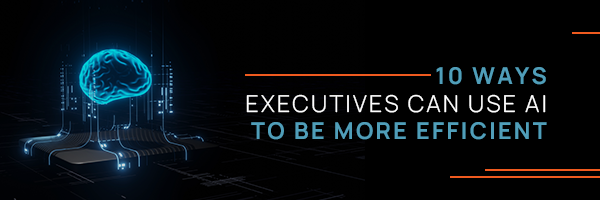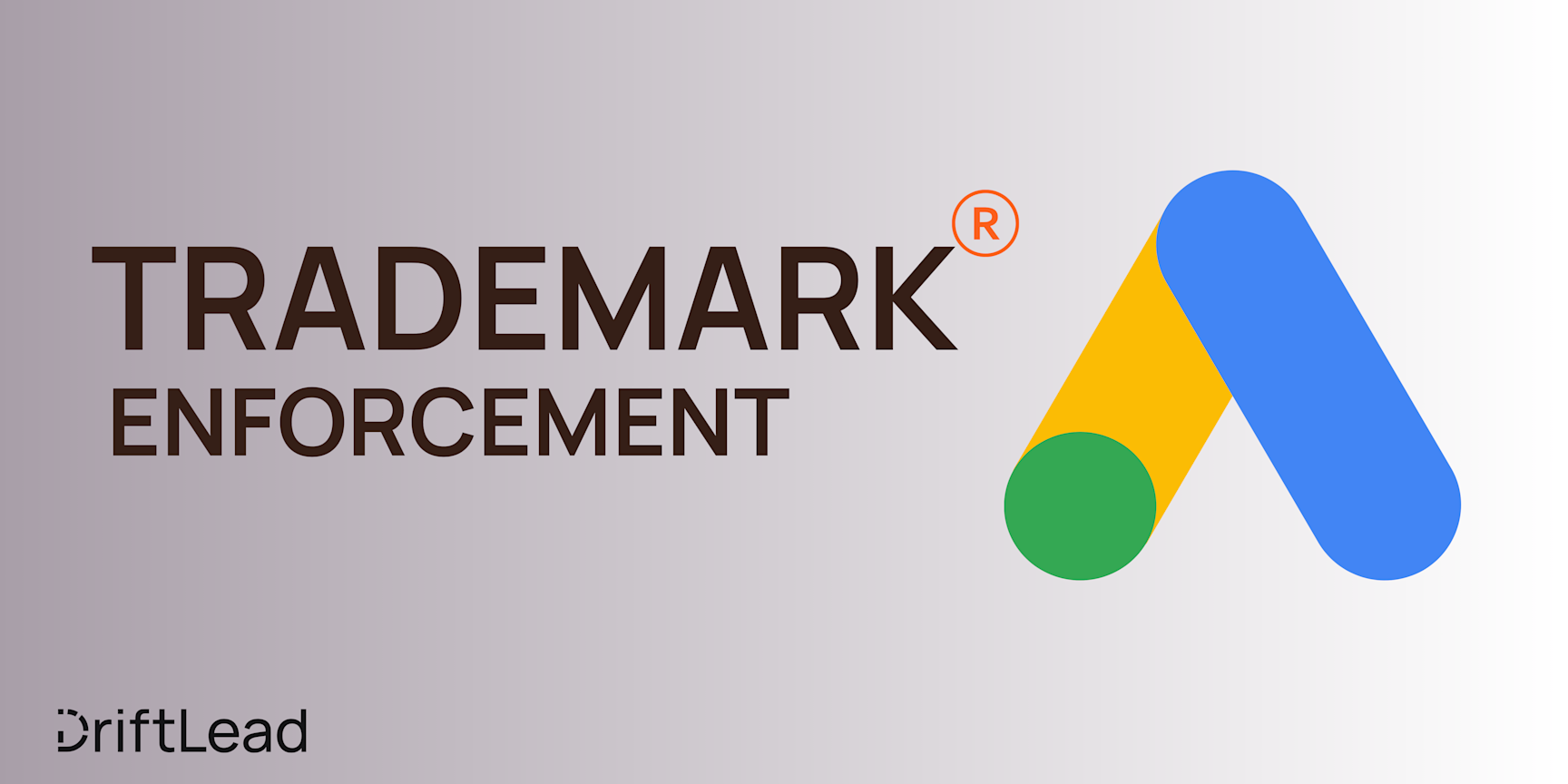10 ways executives can use AI to be more efficient
11 Jul, 2023
Discover how AI can enhance organizational efficiency. From automating routine tasks to making informed decisions, we explore how AI can transform your executive workflow.

Jump to:
Hop on our weekly newsletter train! We're sharing tips so stellar, we're practically job-threatening ourselves!
In our relentless pursuit of efficiency and productivity, the adoption of Artificial Intelligence (AI) technology has undeniably changed the game. However, amid the tech jargon and buzzwords, it can be easy for busy executives to overlook AI's immense potential. If you're a decision-maker who's been on the fence about AI, this article may be just the nudge you need.
Whether we embrace it or not, AI is reshaping the business landscape across all sectors. Its impact is far-reaching, but this isn't merely a story of bots and algorithms taking over jobs. Instead, it's about how we can harness AI to streamline processes, make data-driven decisions, and ultimately, free up our most precious commodity—time.
Throughout this article, we'll delve into AI's role in improving business efficiency, explore real-world applications, and discuss how executives like you can start leveraging this powerful tool. But be warned—once you experience AI's benefits, you might wonder how you ever managed without it.
Understanding AI's Role in Business Efficiency
Artificial Intelligence isn't just a trendy buzzword—it's a potent instrument that can drastically elevate business efficiency. But to harness its power effectively, we first need to understand what it brings to the table.
AI is a suite of technologies that can perform tasks typically requiring human intelligence, such as understanding natural language, recognizing patterns, solving problems, and making decisions. This intelligence allows machines to learn from experience, adjust to new inputs, and perform tasks that mimic human cognition.
AI's true prowess, however, lies in its ability to automate and optimize a wide range of business processes. AI-powered tools can sift through vast amounts of data in a fraction of the time it would take a human to uncover hidden insights, identify patterns, and make accurate predictions. By processing this data swiftly and effectively, AI can augment human decision-making, enhancing strategic planning and operational efficiency.
Moreover, AI can automate repetitive tasks, freeing up executives to focus on more strategic and creative aspects of their roles. This kind of automation increases productivity and reduces the chance of human error, ultimately driving better outcomes.
In the following sections, we'll delve deeper into specific areas where AI can significantly boost efficiency for executives.
Areas Where AI Can Boost Efficiency
There are numerous ways in which AI can enhance efficiency, particularly for busy executives. Here are some of the key areas:
Strategic Decision-Making:
With AI’s powerful data analysis capabilities, executives can make better-informed decisions. AI algorithms can analyze vast amounts of data and predict outcomes based on different scenarios, enabling executives to make strategic decisions backed by solid evidence. This can greatly reduce the risk of costly mistakes and improve overall business performance.
Automation of Routine Tasks:
AI can automate many routine tasks that consume an executive's time. From scheduling meetings to sorting emails, AI can handle these tasks efficiently, freeing up time for executives to focus on higher-level strategic work.
Enhanced Customer Insights:
AI can help executives better understand their customers. By analyzing customer behavior data, AI can identify patterns and trends that human analysts might overlook. These insights can enhance marketing strategies, improve customer service, and increase customer retention.
Predictive Analytics:
Powered by AI, predictive analytics allows executives to forecast future trends and make proactive decisions. This can include predicting market changes, customer behavior, or potential risks, providing executives with invaluable foresight.
Improved Communication:
AI-powered communication tools can streamline interactions both within a company and with external stakeholders. They can translate languages in real-time, transcribe meetings, and even gauge sentiment, making communication more effective and efficient.
Enhanced Security:
AI can enhance a company's security by identifying suspicious activity and potential threats faster and more accurately than human analysts. This helps safeguard a company's data and resources and saves executives time they would otherwise spend dealing with security issues.
Sales and Marketing Efficiency:
AI can help drive efficiency in sales and marketing in a multitude of ways. AI-powered CRM systems can analyze customer data to predict future behavior, enhance customer service, and improve product offerings. Tools like HubSpot's AI capabilities can help identify data patterns to understand customer preferences better, enabling personalized marketing.
Financial Management:
AI-powered platforms like Smacc offer intelligent financial management solutions. They can automate bookkeeping, provide real-time overviews of financials, and use predictive analytics to provide financial forecasts.
Human Resources:
AI can revolutionize the way executives manage human resources. AI applications like Stepstone (formerly Mya) automate the process of candidate sourcing, screening, and scheduling, thus, streamlining the recruitment process. Tools like Humu use AI to analyze HR data and suggest personalized actions to managers to help improve team morale and productivity.
Business Intelligence:
Tools such as Tableau, Sisense, and Zoho Analytics employ AI to provide executives with an easy way to visualize, analyze, and share data across the organization. This can help uncover hidden insights, make data-driven decisions, and identify opportunities for growth.
Risk Management:
AI can assist in identifying and managing potential risks. Tools like DataRobot and RapidMiner can help predict and mitigate risks by analyzing vast amounts of data and identifying patterns that could indicate future risks.
Customer Service:
AI-powered chatbots and virtual assistants can help improve customer service by offering round-the-clock customer support and instant responses. Tools like IBM Watson Assistant can understand, learn, and respond to customer queries conversationally, helping to improve customer satisfaction and loyalty.
Challenges and Considerations in Adopting AI
Artificial intelligence is undeniably transformative and can drive significant efficiencies. However, before diving headfirst into the AI wave, executives should be cognizant of several challenges and considerations:
Data Privacy and Security:
AI systems rely on vast amounts of data to function effectively. It's essential to ensure this data is stored and processed securely to maintain customer trust and comply with regulations like GDPR and CCPA. Regular audits, robust security protocols, and transparent data policies can help manage these concerns.
Ethical Considerations:
The rise of AI has brought with it a range of ethical questions around bias, job displacement, and transparency. Executives must ensure that their AI use aligns with their company's ethical standards and societal norms. This includes ensuring that AI systems are built and trained to avoid biases and that plans are in place to support any staff impacted by AI adoption.
Implementation Costs:
While AI can certainly drive cost efficiencies in the long run, the initial setup and integration can be a significant investment. Executives need to plan for these upfront costs and the ongoing expenses of maintaining and updating AI systems.
Need for Skill Sets:
AI systems are complex and require specific skill sets for their design, implementation, and maintenance. Companies need to either invest in training their current staff or hire new staff with the necessary AI skills.
Trust and Understanding:
AI systems can sometimes be perceived as 'black boxes,' producing outcomes without clear explanations. This lack of understanding can lead to mistrust among both staff and customers. It's crucial to prioritize transparency, explain how AI decisions are made, and address any concerns proactively.
Conclusion
The rise of AI has redefined how executives approach their roles, making it an indispensable part of their efficiency toolbox. By leveraging AI's power, executives can automate routine tasks, make informed decisions faster, and focus on strategic planning that drives growth. However, to truly reap these benefits, they need to thoughtfully integrate AI into their workflows, encouraging a learning culture, setting clear objectives, and managing their data effectively.
If you want to learn more about how to use AI to improve existing marketing efforts, contact us today or get your free marketing plan.






